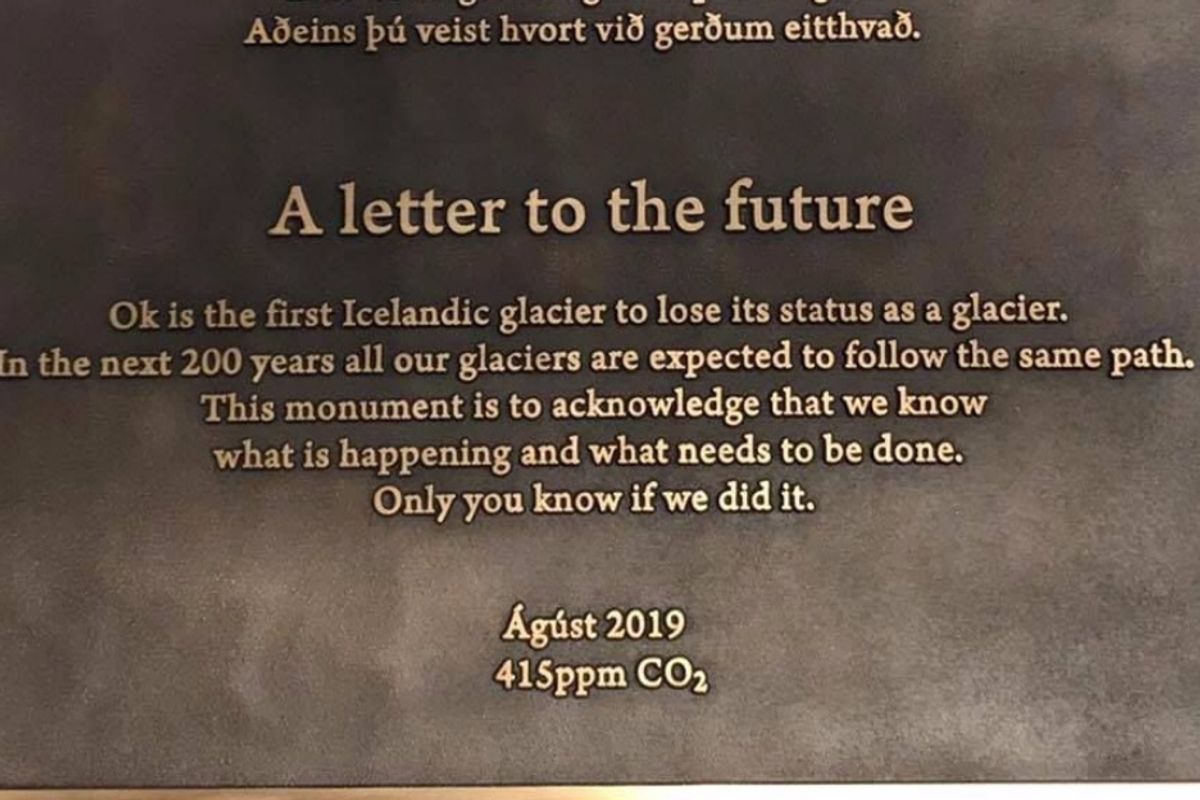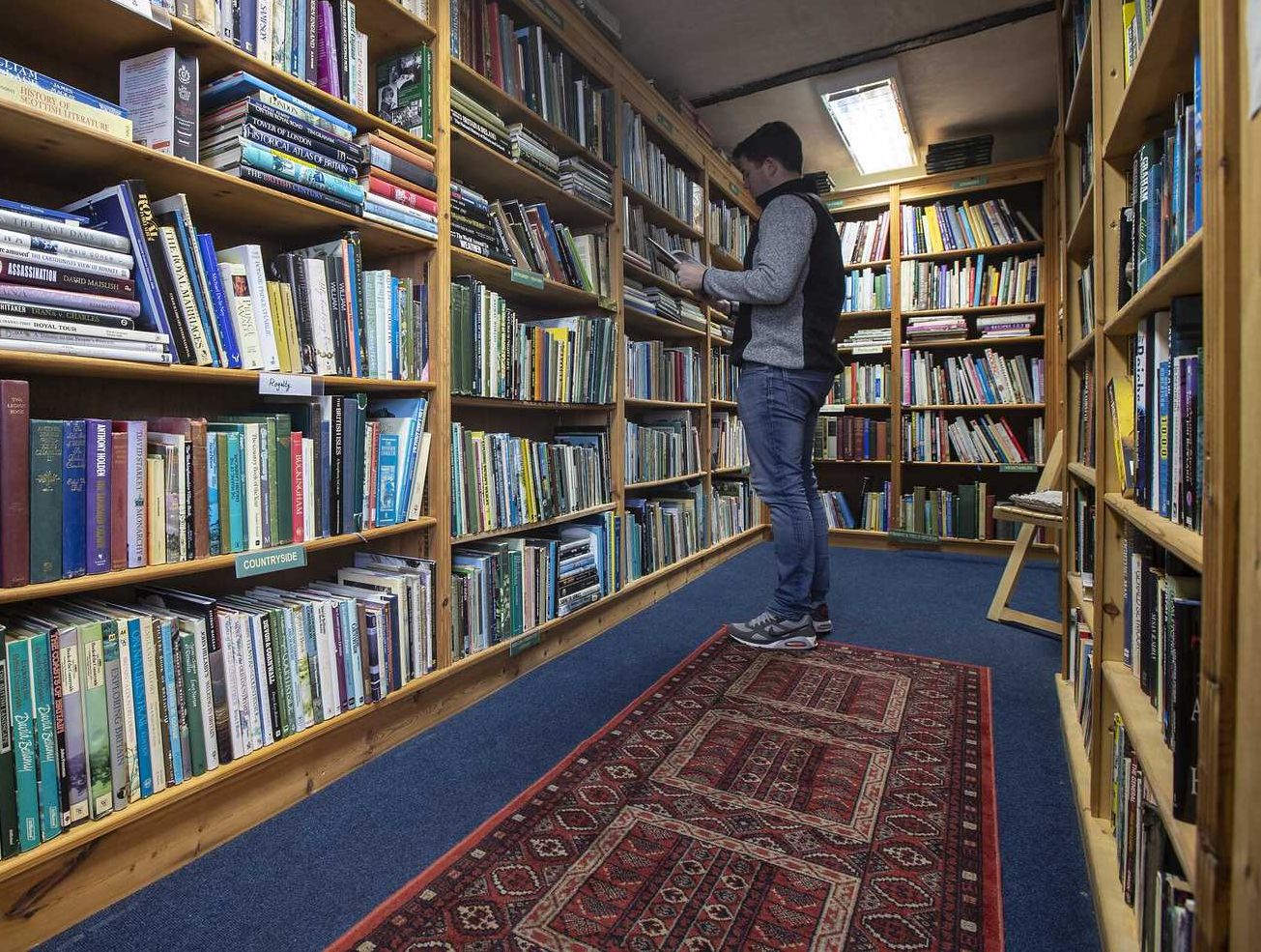A plaque addressed 'to the future' marks Iceland's first glacier lost to the climate crisis
"We know what is happening..."

A plaque marking the death of a glacier comes with a haunting message to future generations.
The former Okjökull glacier in western Iceland is the first to lose its status as a glacier due to climate change. Known now as simply "Ok," the once sprawling ice sheet has melted to about seven percent of what it was a century ago and was declared no longer a glacier in 2014.
Scientists predict that in the next 200 years, if the climate crisis is not mitigated, the rest of Iceland's 400 glaciers will meet the same fate.
Next month, the land that Ok once covered will be marked with a memorial plaque. Researchers from Rice University in Houston, Texas, Icelandic author Andri Snær Magnason, and geologist Oddur Sigurðsson—who first declared the glacier's lost status—will unveil the plaque in a public ceremony on August 18.
The plaque's text begins, "A letter to the future," then reads:
"Ok is the first glacier to lose its status as a glacier. In the next 200 years, all our glaciers are expected to follow the same path. This monument is to acknowledge that we know what is happening and what needs to be done. Only you know if we did it. Ágúst 2019, 415ppm CO2"

The message is simple, to the point, and a warning to us all. The "415ppm CO2" refers to the current carbon dioxide levels in the atmosphere, which are now the highest in human history. Climate scientists around the world have been sounding the alarm for years, but political and economic interests—as well as a slew of conspiracy theories—have far too many people believing the climate crisis is a hoax.
Climate change is not a partisan issue. No seriously, it isn't
Anthropologists Cymene Howe and Dominic Boyer of Rice University, who produced a film about Ok in 2018, hope the memorial will raise awareness about Iceland's glaciers and the impact climate change is having on the planet.
"This will be the first monument to a glacier lost to climate change anywhere in the world," Howe said. "By marking Ok's passing, we hope to draw attention to what is being lost as Earth's glaciers expire. These bodies of ice are the largest freshwater reserves on the planet and frozen within them are histories of the atmosphere. They are also often important cultural forms that are full of significance."
"One of our Icelandic colleagues put it very wisely when he said, 'Memorials are not for the dead; they are for the living,'" Howe added. "With this memorial, we want to underscore that it is up to us, the living, to collectively respond to the rapid loss of glaciers and the ongoing impacts of climate change. For Ok glacier it is already too late; it is now what scientists call 'dead ice.'"
Look at the photos and videos of thousands of youth demanding climate change action NOW
Boyer drove home the ultimate point—we must act now.
"We wanted to create a lasting memorial to Ok, a small glacier that has a big story to tell," he said. "Ok was the first named Icelandic glacier to melt because of how humans have transformed the planet's atmosphere. Its fate will be shared by all of Iceland's glaciers unless we act now to radically curtail greenhouse gas emissions."
- Iceland ad pokes fun of Mark Zuckerberg and the metaverse - Upworthy ›
- Iceland ad pokes fun of Mark Zuckerberg and the metaverse - Upworthy ›
- The introvert-friendly Icelandic tradition of Jólabókaflóð - Upworthy ›
- The introvert-friendly Icelandic tradition of Jólabókaflóð - Upworthy ›
- A glacier the size of Philadelphia just did something scientists have never seen. They're alarmed. - Upworthy ›
- Icelandic woman demonstrates speaking while inhaling - Upworthy ›









 A woman reading a book.via
A woman reading a book.via A woman tending to her garden.via
A woman tending to her garden.via

 Cats can be finicky about how they're held.
Cats can be finicky about how they're held.  Squish that cat.
Squish that cat. 

 A person browses at The Open Book in Scotland.Photo Credit: Colin Tennant, Flickr
A person browses at The Open Book in Scotland.Photo Credit: Colin Tennant, Flickr The bedroom for rent above The Open Book in Scotland.Photo Credit: Colin Tennant, Flickr
The bedroom for rent above The Open Book in Scotland.Photo Credit: Colin Tennant, Flickr